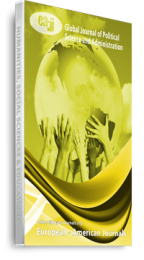Fourteen years after its Unilateral Declaration of Independence (UDI), Kosovo is not still an international legal personality. The major challenge that Kosovo has is neither recognition nor non-recognition but the withdrawal of recognition (WR) by countries that hitherto recognised it after the UDI. Evidently, the recognition of Kosovo has not only stagnated but it is retarding because of WR by some states. On 13 May 2022, Serbian Foreign Minister declared that there is WR by four additional countries bringing the total number of WR to twenty-two. The specific objective of the study is to evaluate the circumstances that precipitated the UDI of Kosovo and the reasons why its recognition is retarding. Accordingly, the study is guided by four research questions. The constitutive theory of statehood is the theoretical framework of the study. The study adopted the quality research methodology. The quagmire generated by the UDI of Kosovo compelled the United Nations General Assembly (UNGA) to seek the advisory opinion of the International Court of Justice (ICJ). There are a couple of reasons why the recognition of Kosovo is stagnating. The most important reason is to forestall a dangerous precedent for other secessionist movements. Some states still hold tenaciously to the illegality of Kosovo’s UDI despite the ICJ’s ruling. On 30 July 2022, the Prime Minister of Spain declared that the UDI of Kosovo is a violation of international law. The study recommends that the United Nation should clearly spell out the conditions for secession and recognition of States.
Citation: Nte T.U. (2023) The Burden of Recognition in the Unilateral Declaration of Independence by Kosovo, Global Journal of Political Science and Administration, Vol.11, No.1, pp.1-19
Keywords: Kosovo, Recognition, UDI, United Nations, security council, states

